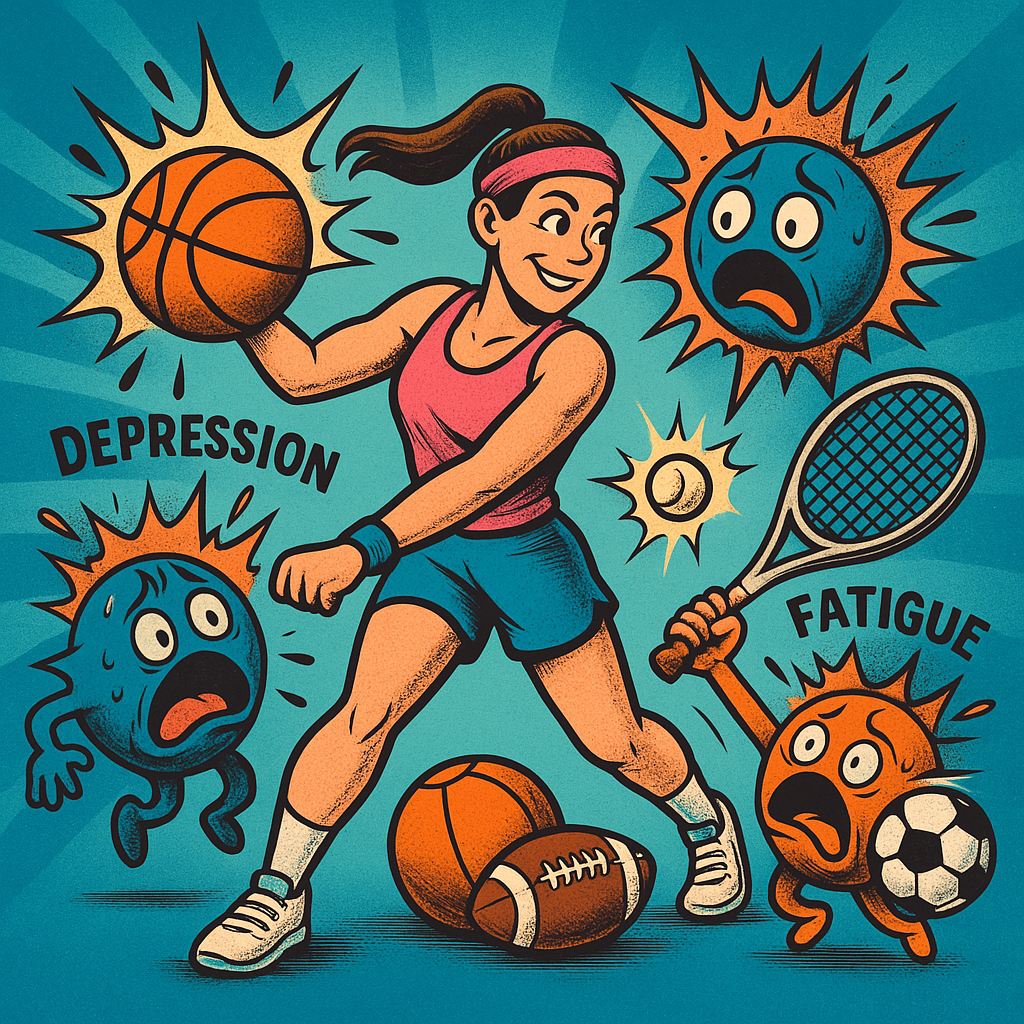Let’s talk about two symptoms that don’t always end when treatment does:
Cancer-related fatigue and depression.
They’re more common than you might think — especially in women — and often get brushed off as “normal.” But a new analysis presented at the AACR Annual Meeting 2025 says there’s something that can make a major difference: exercise.
🧪 What Did the Research Show?
Dr. Simo Du and colleagues dug into data from over 1,500 cancer survivors in the NHANES national survey. The findings were eye-opening:
- 💤 More than 80% of patients on chemo or radiation experience cancer-related fatigue
- 🧠 Around 25% struggle with depression
- 👩 Women were more likely to report both fatigue and depression than men
- 😟 Fatigue and depression were strongly linked to reduced physical activity
But here’s the good news:
✅ Moderate physical activity (think brisk walking, biking, or gardening)
→ ↓ 50% lower risk of fatigue
→ ↓ 60% lower risk of depression
✅ Vigorous physical activity
→ Even greater protection against depression
💡 Why Are Women More Affected?
Du suggests a few reasons:
- Women may metabolize chemo drugs slower, causing stronger side effects
- Hormonal therapies and immune responses may be more intense
- And women might just be more honest when it comes to reporting fatigue (meanwhile, men underreport depression)
It’s a combination of biology and behavior — and it matters for how we care for patients.
🩺 Why This Matters for Us as Future Healthcare Workers
You might be surprised to learn that only about half of oncologists discuss exercise with their patients.
But studies show that when they do, patients actually follow through. So doctors need to do better — because the impact is real.
✔️ Exercise improves quality of life
✔️ It helps survivors return to daily activities
✔️ It’s a low-cost, high-impact intervention we’re not using enough
🎓 The Takeaway
Cancer-related fatigue isn’t “just tiredness.” It can last for months or years after treatment, crush motivation, and lead to withdrawal from the very things that help patients recover — movement, community, and joy.
So let’s flip the script:
Instead of telling survivors to “rest more,” let’s also encourage movement, with empathy and customization.
💬 “Even 10 minutes of walking is better than nothing.”
💬 “Let’s find something you enjoy doing.”
💬 “You don’t need to feel 100% to start.”
Move gently, move often — and help your patients move toward healing.




